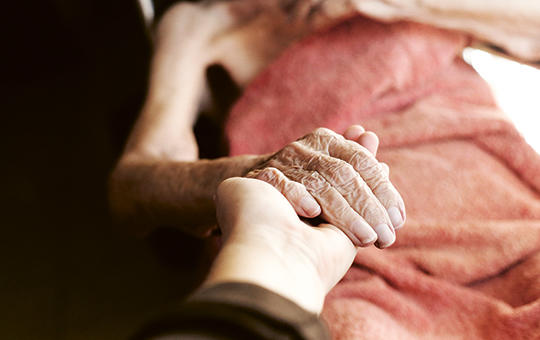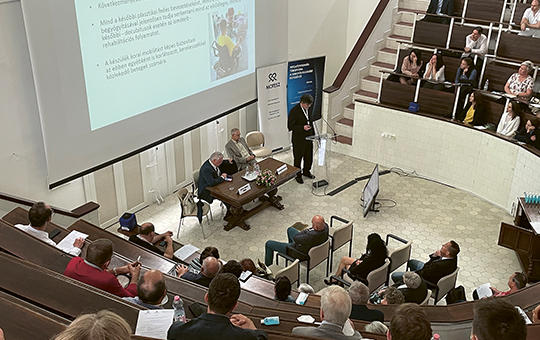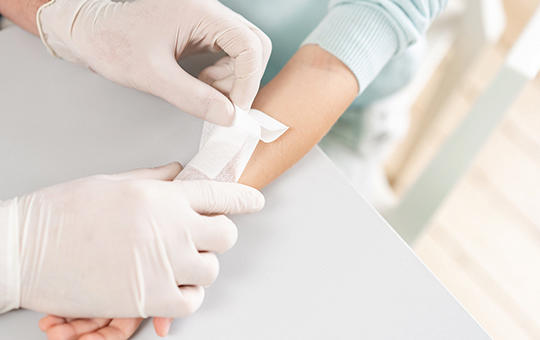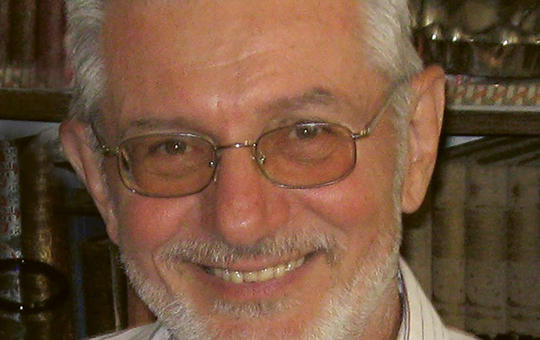The eLitMed.hu medical portal uses computer cookies for convenient operation. Detailed information can be found in the Cookie-policy.
Lege Artis Medicinae - 2022;32(06-07)
Content
[Dual incretin therapy – a novel approach in the antidiabetic therapy of type 2 diabetes ]
[The introduction of incretin-based blood glucose lowering drugs, the dipeptidyl peptidase inhibitors, and glucagon-like peptide-1 receptor agonists (GLP-1 RAs) have opened up new perspectives in the antidiabetic treatment of type 2 diabetes. Beneficial properties of these drugs have directed the attention to study further enterohormones with potentially favourable effects on carbohydrate metabolism. Since the point of attack of these hormones is partly different partly identical, based on theoretical considerations, activating simultaneously their receptors in terms of glycemic control may result in synergistic and additive effects. This study reviews the concept of lowering the blood sugar level in type 2 diabetes based on multiagonistic receptor stimulation further the potential benefits of co-stimulating GLP-1 and glucose-dependent insulinotropic polypeptide (GIP) receptors. It also briefly discusses the first data on tirzepatide as the first representative of dual receptor agonists accepted for clinical use by the FDA.]
[Modern approach and advanced treatment of obesity ]
[Obesity is a recurrent, progressive chronic disease associated with body fat accumulation the body. Due to the nature of the disease, its treatment and care is a life-long program. Elements of therapy: lifestyle modification (diet and exercise), psychological treatment, medication and if necessary, surgery. The Hungarian Society of Obesity and Exercise, recommends a low-carbohydrate and high-protein diet in the first half year of the weight loss program. During physical activity, dynamic, aerobic forms of movement (e.g. walking, jogging, swimming, cycling, etc.) are preferred. The options of drug treatment in Hungary are orlistat, naltrexone/bupropion fixed dose combination and liraglutide sc (3.0 mg) and bariatric surgery, which all can contribute successfully to the weight loss program.]
[Clinical protocol of the early childhood eating and sleep disorders outpatient clinic ]
[In a three-part article series, we present (1) the clinical protocol used by the Early Childhood Eating and Sleep Disorders Outpatient Clinic of the Heim Pál National Pediatric Institute; (2) the follow-up monitoring methodology of treatment efficacy; and (3) the first results obtained by this monitoring program in a three-part article. The Clinic with in-patient background was the first in the Hungarian health care system to provide organized care by interdisciplinary methods for families of infants and young children struggling with early childhood emotional and behavioural regulation problems. The present first article concerns the clinical protocol of our facility based on the international literature and our own prior experiences. In the literature review, we emphasize especially the early childhood range of care for eating and sleep disorders. Thus, we justify the rationale of structure and activities of our Outpatient Clinic launched in 2017 by a brief summary of the international literature. Our aim is to inspire further health care providers to set up similar interdisciplinary services by a detailed description of our facility.]
[Herbs and natural substances used in Covid-19 caused by Wuhan and Delta variants of SARS-Cov-2 in the light of clinical trials]
[The use of medicinal plants in the prevention and treatment of Covid-19 started soon after the pandemic began. In some countries (e.g. China), the use of medicinal plants for this purpose was an officially declared goal. The plants used in therapy were selected on the basis of in silico studies, preclinical data or extrapolation of folk medicinal experience. In other parts of the world, the majority of medicinal plants are used by Covid patients outside of formal medicine, typically as food supplements. In this article, we review randomised controlled clinical trials of herbal preparations, indtoducing the potential place of herbal preparations in the therapy of Covid-19. A total of 17 trials were identified, most of which studied the effect on disease symptoms. Although most of the products tested were shown to be effective in at least one endpoint, the quality of the studies (mostly open-label, using non-standardised formulations) does not allow positive conclusions on efficacy.]
[Attitudes towards end-of-life decisions among neonatology intensive care workers – Legal aspects behind decisions ]
[Minors’ end-of-life dilemmas are among the most difficult decisions. Premature infants’ chance of survival has greatly improved thanks to the development of technology. Under-age children’s quality of life, as an aspect, does not appear in the effective Hungarian legislation. The aim of our study is to survey the change in NICU (neonatology intensive care unit) workers’ opinions/attitudes after a 20-year-period about restrictions in severely impaired new-borns’ intensive cares. Quantitative, complete sociological surveys in the Hungarian NICUs using self-administered, anonymous questionnaires (n = 728). Cross-Tabulation analysis and Pearson chi-squared test have been used for the data evaluation. In both studies, the majority of participants agreed that if the condition is fatal, it may be appropriate to limit the intensive care. Acceptance of treatment withdrawal has increased, but active euthanasia is still not accepted. Most healthcare workers are unsatisfied with the current legal order and there is a need for change, especially in cases of fatal and poor prognosis. Despite the fact that the effective Hungarian health care regulation does not allow withdrawal of treatment even in severe conditions, a significant number of those working at Hungarian NICUs would consider it as acceptable in some cases, moreover the share of acceptance has increased in the last two decades. Comparing the results with the current regulations, it can be suggested that it is necessary to increase the sensitivity of the legislators and to change the related legislation.]
[To be a “good enough” physician – The identification and acceptance of shame]
[For two and a half millennia, the subject of shame, either in a toxic form that results in the masking of errors or in an adaptive form that may promote patient safety, has been almost missing from the narrative of medicine. The author traces the path of medical problematization of shame, mainly in the light of the work of those Hungarian psychoanalytic doctors who have played a role in this process. In the light of the concept of a “good enough” doctor, he examines the negative consequences of perfectionism for excellence. ]
1.
Clinical Neuroscience
Is there any difference in mortality rates of atrial fibrillation detected before or after ischemic stroke?2.
Clinical Neuroscience
Factors influencing the level of stigma in Parkinson’s disease in western Turkey3.
Clinical Neuroscience
Neuropathic pain and mood disorders in earthquake survivors with peripheral nerve injuries4.
Journal of Nursing Theory and Practice
[Correlations of Sarcopenia, Frailty, Falls and Social Isolation – A Literature Review in the Light of Swedish Statistics]5.
Clinical Neuroscience
[Comparison of pain intensity measurements among patients with low-back pain]1.
Clinical Neuroscience Proceedings
[A Magyar Stroke Társaság XVIII. Kongresszusa és a Magyar Neuroszonológiai Társaság XV. Konferenciája. Absztraktfüzet]2.
3.
Journal of Nursing Theory and Practice
[A selection of the entries submitted to the literary contest "Honorable mission: the joys and challenges of our profession" ]4.
Journal of Nursing Theory and Practice
[End of Life and Palliative Care of Newborns in the Nursing Context]5.
Journal of Nursing Theory and Practice
[Aspects of Occupational Health Nursing for Incurable Patients ]












